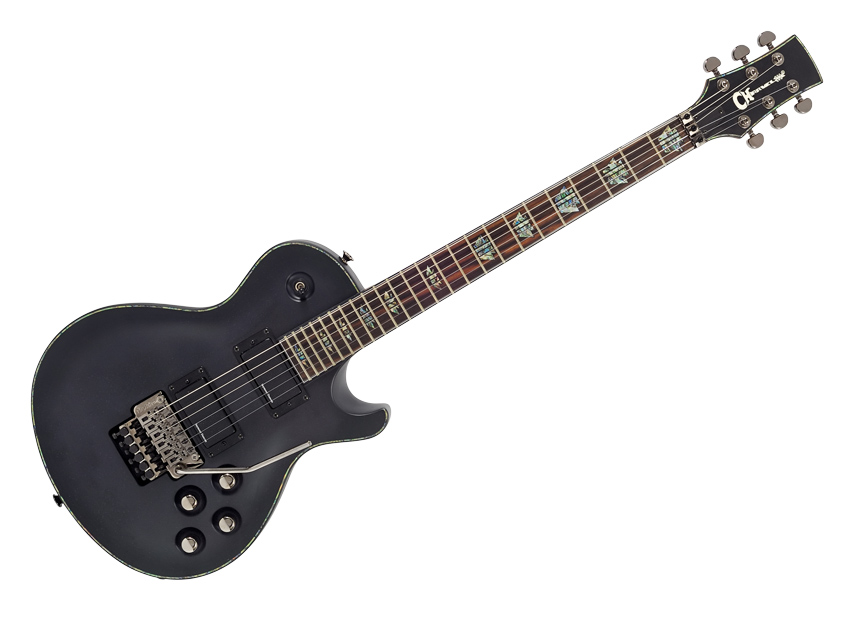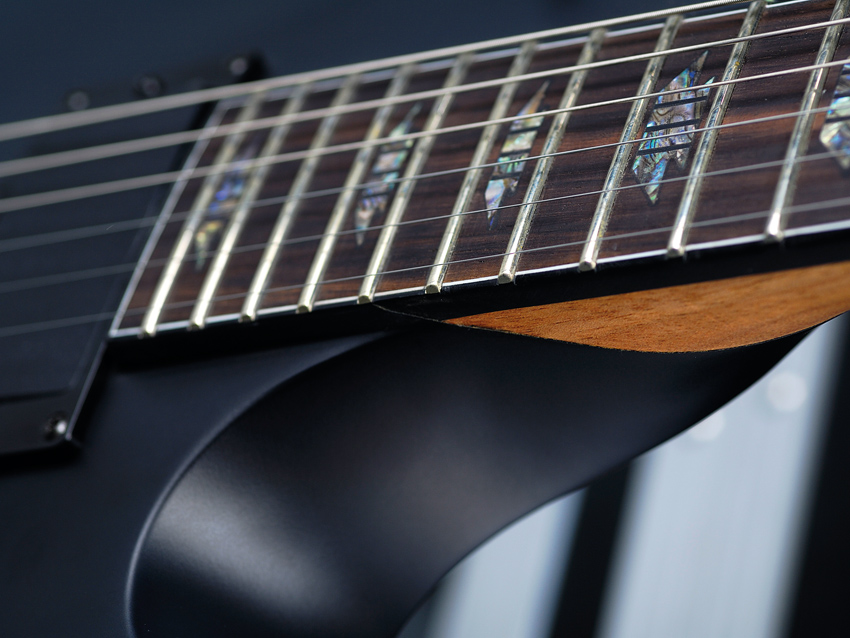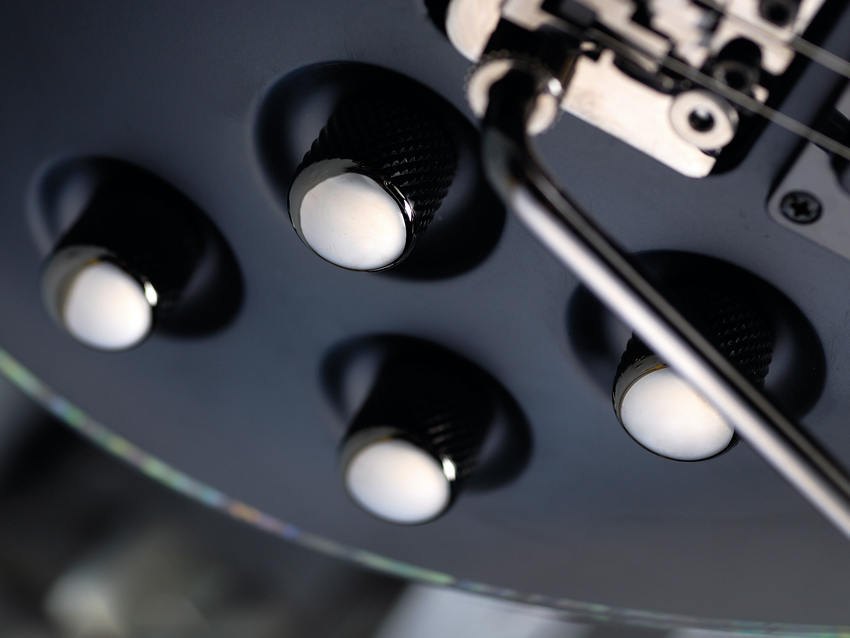MusicRadar Verdict
A decent, metal-ready take on Gibson's seminal single-cut.
Pros
- +
Our example's flat black finish; smooth tones; control layout.
Cons
- -
Abalone binding; knobs very close together.
MusicRadar's got your back

Charvel Desolation DS-1 FR

Charvel Desolation DS-1 FR

Charvel Desolation DS-1 FR
Since Fender's acquisition of the Charvel brand in 2002, the parent company has remained pretty true to the original tearaway teen's mantra of producing hot-rodded rock guitars.
After the Art Series and its association with Edward Van Halen (surely the most famous of the original Charvel users from the late seventies) piqued interest, along came the truly awesome San Dimas range, which stayed even closer to the original West Coast vibe.
"The layout of the four control pots has the bridge pickup's volume control set closest to the picking hand - attention to detail that we heartily applaud."
Today, with a San Dimas Style 1 costing a mere £619 and selling very nicely, we'd assumed that Charvel would consider continuing along these 'heritage' lines. However, in the spirit of evolution comes the new Desolation range, which includes a number of versions, also at various price points, of three designs that Charvel has not previously utilised - the Skatecaster SK-1, DS-1 and DC-1, all available in Floyd Rose or hardtail models.
While Charvel has a history of producing genuine 'shape' guitars, such as the Hydra and the Star, the brand never turned its building skills to the humble single-cutaway, save for the much-missed and wonderfully over-the-top Model 7 T-type.
The body here is closer in vibe to established models such as the ESP Eclipse than anything bearing the Gibson logo, and is without doubt a very modern guitar - not even the Les Paul Axcess offers as much body contouring as we see here.
The flat black finish of our example looks good with the black nickel-plated hardware, although its abalone binding looks seriously out of place. It's fitted with Grover rather than Charvel tuners, presumably to echo the associated Nashville vibe.
The pickups comprise a set of Seymour Duncan's underrated Blackout active humbuckers, which are controlled by individual volume and tone pots plus a standard three-way toggle. The choice between the Duncans and the more ubiquitous EMG set throughout the Desolation range is one we're sure that players will appreciate, and what's more, the layout of the four control pots has the bridge pickup's volume control set closest to the picking hand - attention to detail that we heartily applaud.
Want all the hottest music and gear news, reviews, deals, features and more, direct to your inbox? Sign up here.
The DS-1's neck is slightly thicker in depth and it does offer a slightly more rounded feel compared to the flatter-backed profile of other Desolation guitars we've seen, although its difficult to ascertain whether this is just an anomaly or what's likely to be a standardised production process.
Sounds
Through-neck designs are celebrated for their long sustain, and that's the case here. Because of its less-than-totally intimate connection with the body wood, however, a Floyd Rose will take some tone away - but the DS-1 still packs a beast of a punch.
The SD Blackout humbuckers at the bridge offer a slightly smoother high end than the default Desolation EMGs, something akin to the roar of Mark Tremonti. There's plenty of gain when required, but the DS-1 demonstrates that there can be adequate tonal wiggle room within the realm of the active pickup.
Played clean, there's some lovely woody body to strummed chords and, as the amp gain is raised, so is the trebly edge. The DS-1 stays perfectly in tune, plays wonderfully and is well balanced when strapped on.
For anyone who remembers the late '70s and '80s, it feels slightly off-message for Charvel to be going after a genre where the likes of ESP, Schecter and indeed fellow Fender-owned brand Jackson are already so well established. But it's questionable whether the kids will care, so if you can get over this hangup, the DS-1 is well worth a whirl.
Simon Bradley is a guitar and especially rock guitar expert who worked for Guitarist magazine and has in the past contributed to world-leading music and guitar titles like MusicRadar (obviously), Guitarist, Guitar World and Louder. What he doesn't know about Brian May's playing and, especially, the Red Special, isn't worth knowing.